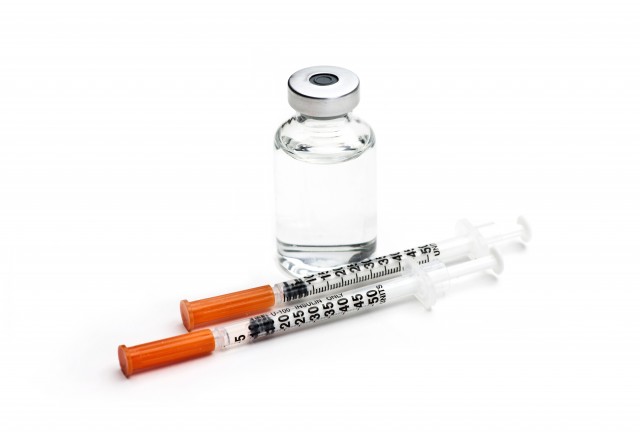The global biosimilars market size was anticipated to reach $xx billion supported by a CAGR of xx% over the forecast period. Occurrence of large number of chronic disorders and affordability of biosimilar drugs are the main factors participating in the growth of the global biosimilars market.
Request a sample of this report@ https://www.adroitmarketresearch.com/contacts/request-sample/72
Biosimilar products are similar to their accredited products on the basis of biological activity, efficacy, and safety and quality characteristics. An occurrence of chronic disorders such as cancer, anemia, diabetes, autoimmune diseases, kidney failure, rheumatoid arthritis, infectious diseases and deficiency of growth hormones is projected to fuel the global biosimilars industry in the coming years.
Specialty biologics is the biggest factor for pharmaceutical cost growth in the market. In the U.S., as per research around nine patents for top 20 retailing biologics are supposed to expire by 2020. However, biosimilars are less expensive than the original drugs hence, more usage of biosimilars will lead to cost savings. The first biosimilar was accepted by European Medicines Agency in 2006 and has approved out of 40 biosimilars. Food and Drug Administration (FDA) confirmed their first biosimilar through Zarxio, which is a biosimilar of filgrastim used in treating low blood neutrophils. Overall, total 11 biosimilars were approved by FDA out of which only 3 biosimilars are launched.
Browse the complete report@ https://www.adroitmarketresearch.com/industry-reports/biosimilars-market
Product segment in the biosimilars market consists of Erythropoietin, Human Growth Hormone, Insulin, Monoclonal Antibodies, Colony Stimulating Factors, Interferon and more. Biosimilars market is divided into oncology diseases, growth hormone deficiency, blood disorders, autoimmune and chronic disorders. Use of biosimilars in the treatment of blood disease is the maximum revenue making segment. Increase in use of biosimilars for treating several diseases is helping to scale up the global biosimilar market size.
The biopharmaceutical industry is dependent on advanced technologies used in several processes of manufacturing and development. Some of the important technologies involved in biosimilars are Recombinant DNA technology, Monoclonal Antibodies Technology, Chromatography, Nuclear Magnetic Resonance Technology, Bioassay, Western Blotting, and Mass Spectrometry. Bioassay and Monoclonal Antibodies technology are the most important technologies used for validation and development of global biosimilars market share.
Pharmaceutical companies are mainly focusing on development of biosimilars and they are accepting clinical trials strategies and approval. Approval and clinical trials strategies are the main factors in the biosimilar market globally. Companies such as Merck Serono, Celltrion and Sandoz are looking for approvals across the world. These companies are branches of global industries such as Novartis and Merck, which allows investing in biosimilar market. The plans accepted by manufacturers in an integrated manner where all clinical trials conducted for approvals and commercialization. Joint venture, License, product launch, partnership are the policies accepted by companies who had got permission from the authorities and have successfully copied the original drugs. Thus, development of biosimilars by manufacturers are increasing the growth of the global biosimilars industry.
Benefits of the global biosimilars market:
- Cost of treatment is less by using biosimilars rather than using the biological drug.
- The profit margin of operating original biological drug is around 30%, but for operating, the biosimilar product, profit margin is around 40%.
- As license of original product expires thus, opportunities for a generic version of biopharmaceutical products is very large.
- Funding is easily available across the world.
Regional Overview:
Geographically, global biosimilar industry is divided into Europe, South America, North America, Asia Pacific and Middle East & Africa. North America holds the largest share of the global biosimilar market. The market of North America is mainly driven due to the presence of research laboratories, such as Amgen, Sandoz, Teva Pharmaceuticals and many more. Due to the development of biotechnology companies, Asia Pacific is anticipated to experience growth over the forecast period.
Key Players:
Companies involved in expanding the global biosimilar market size are Teva Pharmaceutical Industries Ltd., Amgen Inc., Sandoz International, Hoffmann-La Roche Ltd., Dr. Reddy’s Laboratories Ltd., Pfizer Inc., Mylan, Biocon, and Samsung Bioepis.
Place a purchase order of this report @ https://www.adroitmarketresearch.com/researchreport/purchase/72
About Us:
Adroit Market Research is an India-based business analytics and consulting company incorporated in 2018. Our target audience is a wide range of corporations, manufacturing companies, product/technology development institutions and industry associations that require understanding of a market’s size, key trends, participants and future outlook of an industry. We intend to become our clients’ knowledge partner and provide them with valuable market insights to help create opportunities that increase their revenues. We follow a code– Explore, Learn and Transform. At our core, we are curious people who love to identify and understand industry patterns, create an insightful study around our findings and churn out money-making roadmaps.

Contact Information:
Ryan Johnson
Account Manager Global
3131 McKinney Ave Ste 600, Dallas,
TX75204, U.S.A.
Phone No.: USA: +1 (214) 884-6068 / +91 9665341414


 Log in with Facebook
Log in with Facebook 








